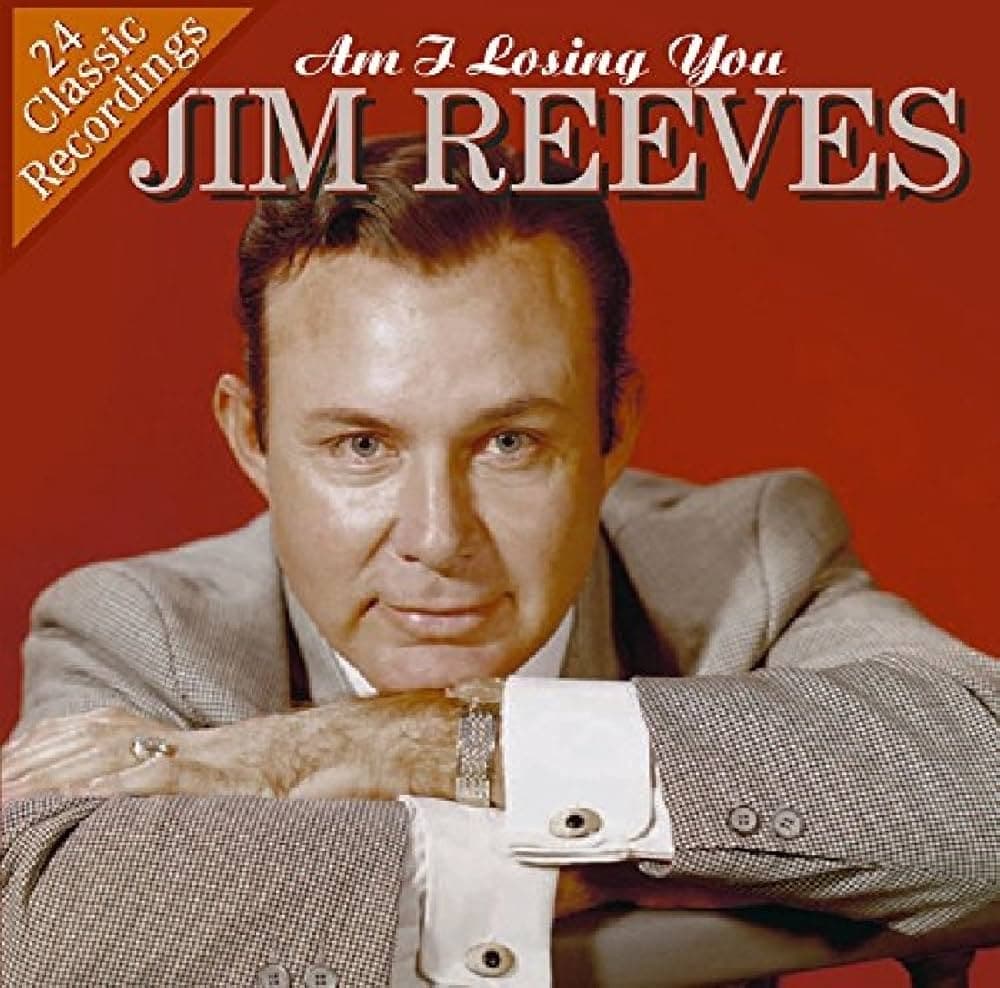
A Whispered Question That Echoes Through the Quiet Corners of the Heart
When Jim Reeves first released “Am I Losing You” in 1957, the song swiftly rose into the upper reaches of the country charts, confirming his emerging status as one of the era’s most refined voices. Later included on his 1957 album Songs to Warm the Heart, the recording marked a turning point in Reeves’s evolution from a rough-edged honky-tonk performer into the velvet-toned architect of what would soon be known as the Nashville Sound. Its success was not merely commercial; it was emotional—proof that a simple question, delivered with extraordinary gentleness, could carry the weight of an entire relationship’s unraveling.
At its core, “Am I Losing You” is a study in subtlety, a masterclass in how restraint can be more devastating than confession. Reeves does not shout, dramatize, or accuse. Instead, he leans into the mic with a soft, measured intimacy that feels less like a performance and more like a private moment overheard. His voice—warm, unhurried, impossibly smooth—wraps itself around the lyric’s unease, transforming a lover’s quiet dread into something universally recognizable: the fear of watching affection slip away without knowing how, when, or why.
The song’s structure mirrors its emotional architecture. The melody moves with unbroken calm, almost deceptively so. Beneath its graceful surface lies a tension that never resolves, much like the question the singer asks. Reeves rides that tension with an elegance that would come to define his career. His phrasing is meticulous: each line is allowed to breathe, to linger, to settle—mirroring the way doubt settles into the heart, slowly and without permission.
Though “story behind the song” anecdotes are scarce, its legacy speaks volumes about its origins. This is the work of an artist who understood the power of understatement. At a time when country music still traded heavily in twang and barroom bravado, Reeves carved out a new emotional vocabulary—quiet, polished, contemplative. “Am I Losing You” captures the moment he stepped fully into that identity, leaving behind the sharper edges of his earlier sound and embracing a style that would influence generations of crooners after him.
Lyrically, the song unfolds like a soft interrogation. There is no confrontation, only vulnerability. “Am I losing you?” is a question without an answer, and Reeves never attempts to supply one. Instead, he suspends the listener in that uncertain space where love is neither present nor gone—merely fading, like light at dusk. In this way, the song becomes not just a reflection of romantic anxiety, but an emblem of adulthood itself: the understanding that even our deepest attachments are fragile.
More than six decades after its release, the song endures not because of grand storytelling or dramatic arrangements, but because it distills an experience that every listener, at some point, has known. With “Am I Losing You”, Jim Reeves achieved something rare—he captured the precise moment when silence becomes louder than words, and when a single question becomes the whole story.